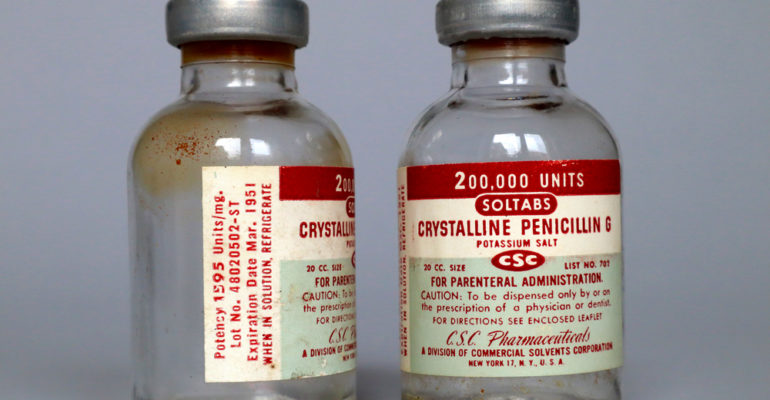Alexander Fleming’s Discovery and the Antibiotic for Mental Health
Alexander Fleming[1], the Scottish bacteriologist, is celebrated for his groundbreaking discovery of penicillin, a revolutionary antibiotic that transformed medicine. While Fleming’s contribution to antibiotics is widely acknowledged, this article explores the metaphorical application of his work to mental health, highlighting the need for innovation and transformative solutions in mental health care.
Antibiotics for Mental Health: A Metaphor
Fleming’s discovery of penicillin[2] opened new frontiers in medicine, saving countless lives by combating bacterial infections. Drawing on this metaphor, the world needs more individuals who, like Fleming, pioneer transformative solutions for mental health[3]. By seeking innovative approaches, leaders can develop the equivalent of mental health “antibiotics” – interventions that address the root causes and provide effective, targeted support.
Breaking the Stigma: A Mental Health Revolution
Fleming’s breakthrough revolutionized the treatment of infectious diseases, and a similar revolution is needed in the realm of mental health. Leaders who challenge stigma and advocate for open conversations around mental health contribute to creating an environment where seeking help is normalized.[4] This cultural shift is a crucial step in developing effective mental health solutions.
Identifying Mental Health Pathogens
In the world of infectious diseases, antibiotics target specific pathogens. Similarly, mental health care needs tailored interventions. Leaders who understand the diverse nature of mental health challenges and work towards personalized approaches[5] contribute to the identification and treatment of mental health “pathogens.”
Early Intervention: The Mental Health Equivalent
Fleming’s work emphasized the importance of early intervention in treating infections. Likewise, mental health leaders can champion early intervention strategies that address mental health concerns before they escalate. By fostering awareness and providing accessible resources, leaders contribute to a proactive approach to mental well-being.[6]
Collaboration for Mental Health Advancement
Fleming’s collaborative spirit, seen in his work with other scientists, is equally vital in mental health care. Leaders who prioritize interdisciplinary collaboration and share knowledge contribute to the development of comprehensive mental health solutions. Just as Fleming’s collaboration accelerated antibiotic research, collective efforts can drive progress in mental health care.
Antibiotic Resistance and Mental Health Challenges
Fleming warned about antibiotic resistance[7], urging responsible use. Similarly, leaders in mental health must address emerging challenges such as the rise in mental health issues. By advocating for preventive measures, sustainable interventions, and the responsible use of mental health resources, they can mitigate the risk of mental health “resistance.”
Bridging Gaps in Mental Health Access
Fleming’s work extended the reach of medical care. In mental health, leaders must work towards bridging gaps in access. By advocating for equitable distribution of mental health resources, reaching underserved populations, and addressing socioeconomic disparities, leaders contribute to a more inclusive mental health care system.[8]
Mental Health Innovation for the Future
Fleming’s legacy is one of transformative innovation. Similarly, the world needs mental health leaders who envision and implement innovative solutions. From digital interventions to novel therapeutic approaches, leaders can drive mental health care into the future, ensuring that it evolves to meet the changing needs of individuals and societies.
Conclusion: Cultivating Mental Health Pioneers
In the spirit of Alexander Fleming, the world needs more mental health pioneers – individuals who break new ground, challenge conventions, and envision a future where mental well-being is prioritized. By drawing inspiration from Fleming’s dedication to scientific exploration, leaders can cultivate a landscape where mental health care evolves, adapts, and ultimately becomes as transformative as the antibiotics that revolutionized medicine. As we navigate the complexities of mental health, the principles embodied by Fleming become a guiding force in fostering a world that values and advances mental well-being for all.
[1] Maurois, André. The Life of Sir Alexander Fleming. New York, 1959.
[2] Tan, Siang Yong, and Yvonne Tatsumura. “Alexander Fleming (1881–1955): discoverer of penicillin.” Singapore medical journal 56.7 (2015): 366.
[3] World Health Organization. “World mental health report: Transforming mental health for all.” (2022).
[4] Corrigan, Patrick W. “Lessons learned from unintended consequences about erasing the stigma of mental illness.” World Psychiatry 15.1 (2016): 67-73.
[5] Lucey, Paula Ann. Leadership style and organizational citizenship behavior in community-based mental health facilities. Diss. Walden University, 2017.
[6] Arango, Celso, et al. “Preventive strategies for mental health.” The Lancet Psychiatry 5.7 (2018): 591-604.
[7] Stewart, Harlan. “Alexander Fleming, antibiotic resistance, and relevant lessons for the mitigation of risk from advanced artificial intelligence.” (2023).
[8] Stirman, Shannon Wiltsey, et al. “Bridging the gap between research and practice in mental health service settings: An overview of developments in implementation theory and research.” Behavior therapy 47.6 (2016): 920-936.








